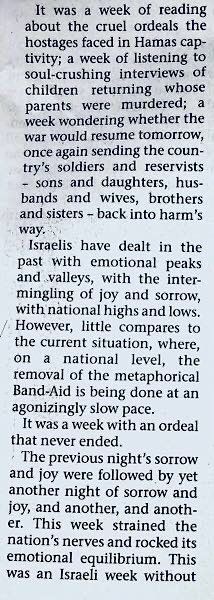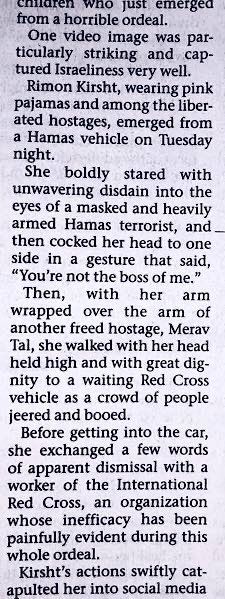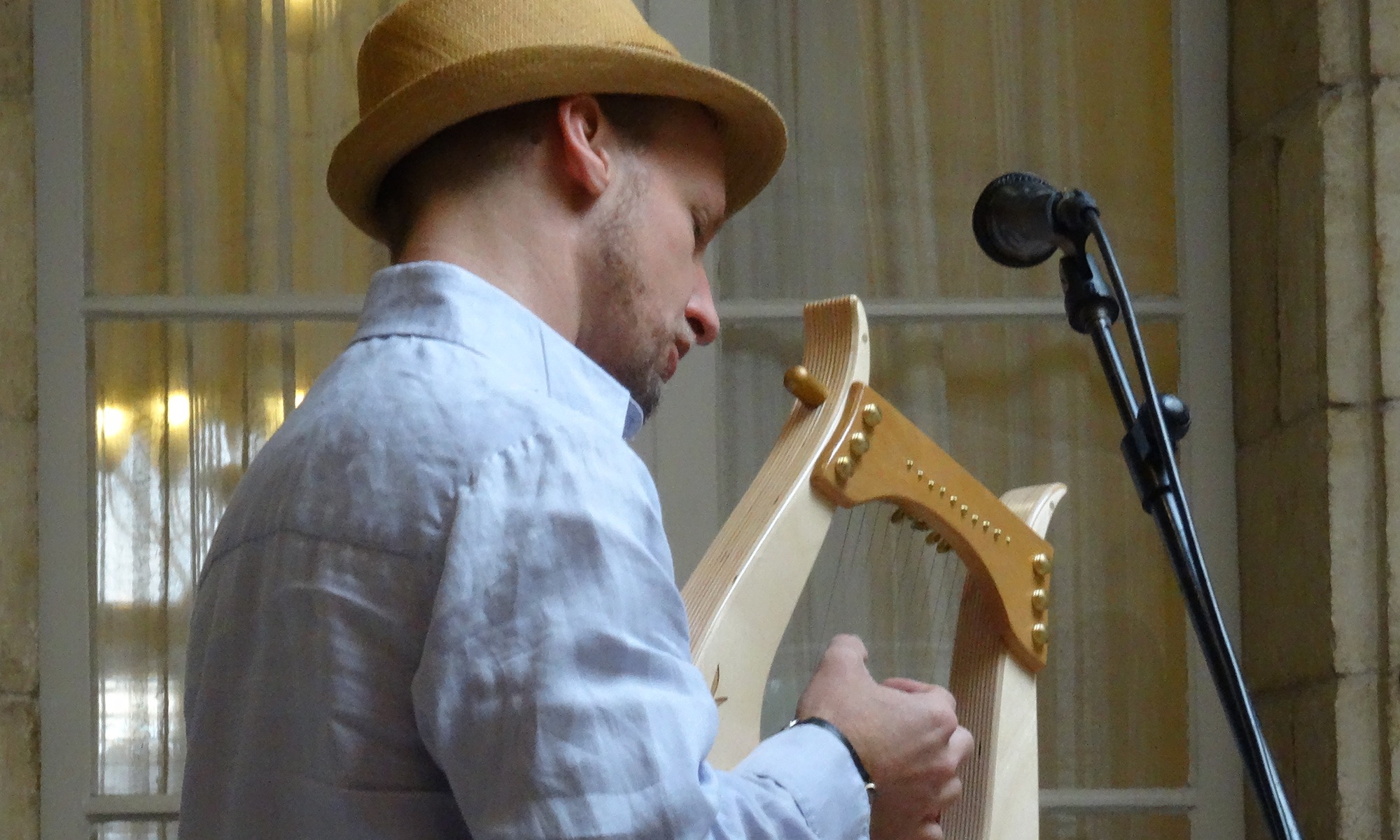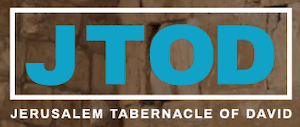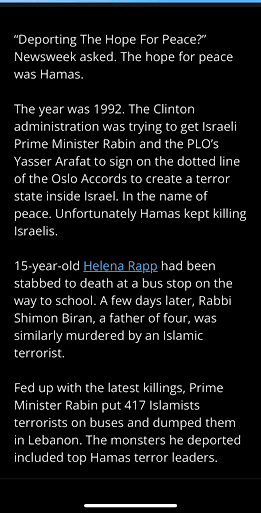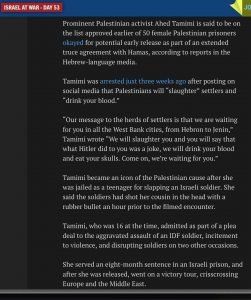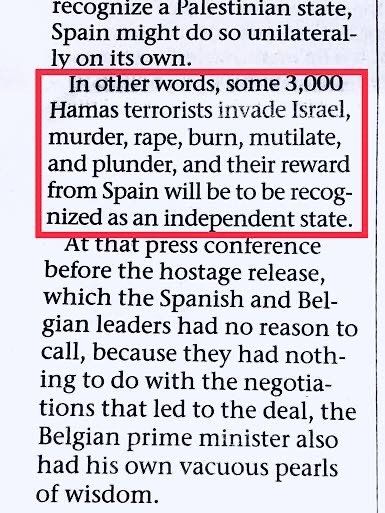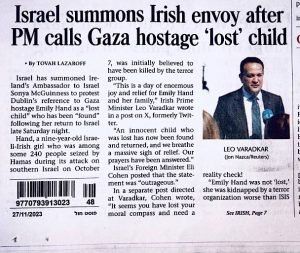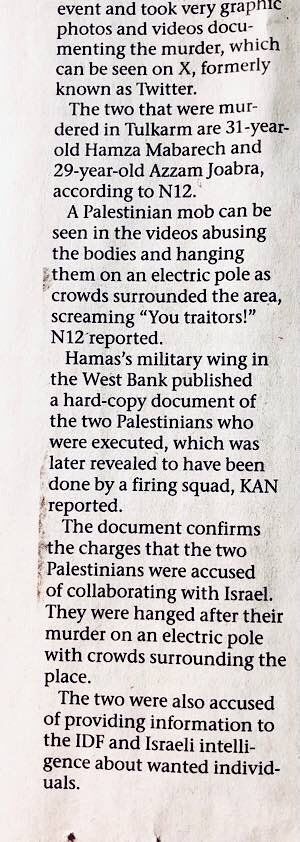27 Nov 2023, Samaria: Hamas continues to show an incredible amount of self-control in managing their manipulation powers; and control over their fighters and those of Islamic Jihad and other military groups; We all expected their underlings to disrupt the cease fire by now. Gaza Hamas leader Yehya Sinwar has been on TV walking the streets in an open-air parade, knowing that Israel is too moral to fire at him during the paus, and, as he sees it, Israel is too weakened by her concern for her loved ones who are held hostage. Israel knows she is being manipulated – but the majority view is to allow the manipulation to continue even as we weaken our ability to negotiate.
If I had to summarize the two Israeli viewpoints:
Majority view:
(1) TALKING to the Israeli political class to pressure the government to
(1a) stop fighting Hamas, and
(1b) TALK to Hamas to negotiate hostage returns.
The Minority view (2) is that
(2a) Hamas is terrorist and does not know the language of TALKING; only military pressure can get the hostages back, and
(2b) Stopping the military pressure hinders rather than helps Israel’s ability to get ALL the hostages back. Hamas is not influenced by their victims’ tears since Hamas is uncivilized.
Most of society gives the most airtime to the majority view; the belief that talking is the solution. Below is another article which gives about 1 paragraph to the minority view, and around 10 to the majority. Whoever “the underdog” is, I root for the underdog’s message to be heard:
“Even among the parents of the hostages, not everyone is on board with making deals with Hamas.
“’The most correct and effective way for retrieving the hostages is by applying uncompromising pressure on Hamas until the hostages become a liability for Hamas instead of an asset,’ a spokesperson for Tikvah, a new forum of families of hostages that oppose exchanges with Hamas, told The Times of Israel on Friday. The forum’s founder is Eliyahu Libman, who heads the municipality of the West Bank settlement of Kiryat Arba near Hebron and whose son Elyakim is thought to be a hostage.”
https://www.timesofisrael.com/this-beeri-survivor-knows-hamas-is-manipulating-his-community-he-still-wants-a-deal/
And here is a thorough overview of the powerplay: https://www.timesofisrael.com/hamass-hostage-manipulations-show-how-much-control-it-continues-to-hold-over-gaza/
In conclusion, emotions and war do not mix. At some point, the Israeli women and men will need to accept the loss of some of the Israeli civilians. It’s inevitable, and this must not be allowed to weaken Israel’s resolve to restore peace through strength.
(alternative spellings: Yehya/Yahya Sinwar)
Support our work in a challenging time and place.
Share the post "Hostages: Two main viewpoints in Israel"
